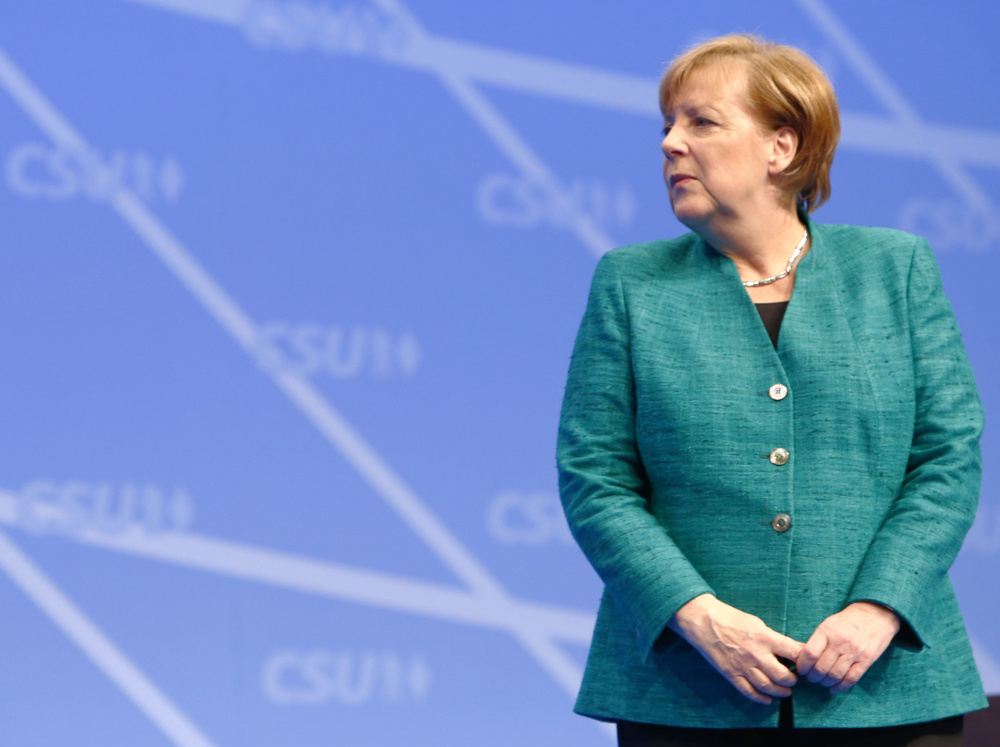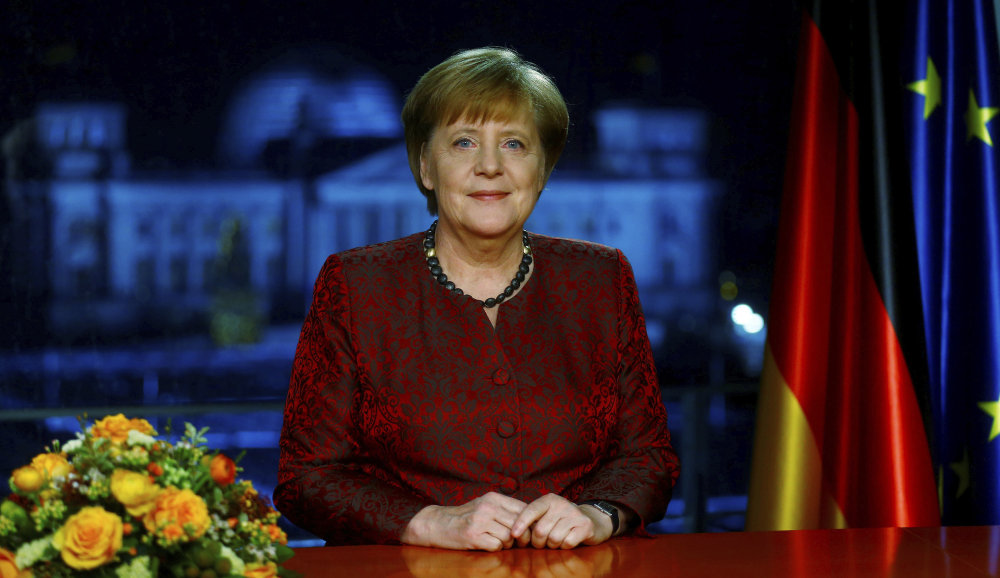BERLIN — For a dozen years, Angela Merkel seemingly floated above the laws of political gravity, making her calm and consensual leadership style as much a part of the German landscape as fairy-tale castles, precision engineering and beer-saturated Octobers.
But the early days of her 13th year as chancellor have been marked by a bracing return to Earth.
Every political career ends, and Merkel’s finale may be coming faster than just about anyone had predicted. Her rapidly diminishing political stock threatens to leave a void not only in Germany, but across the West, just as she had emerged as the most robust internationalist counterpoint to Trump-style nativism.
Merkel’s troubles started with a bitterly disappointing election result in September. They grew when her first attempt at forging a new government collapsed in November. And they have been compounded in recent days, as polls have shown German voters tiring of her leadership.
Merkel now has what many regard as a last shot to cobble together a coalition and ward off an embarrassing electoral do-over that could see her lose her grip on power.
“Time is running out,” said Stefan Kornelius, a Merkel biographer. “She is under immense pressure to somehow make this happen.”
But even if she succeeds, significant damage has already been done. Once regarded as invincible, Merkel is suddenly vulnerable in a way that has shifted the German political conversation to a topic long whispered about but rarely publicly debated before: Who should come next?
There are many contenders, their names bandied about in German newspapers and magazines in recent days. But Merkel’s saving grace may be that there is no obvious successor.
There’s certainly no one who could immediately fill the outsize role that Merkel has played in global affairs. Though not always willingly, the low-key East German with a Ph.D. in quantum chemistry has become de facto leader of Europe and keeper-of-the-flame for those who regard President Trump’s brand of politics as a threat to core Western values.
“The world is engulfed by Trumpism and populism and vulgarianism,” said Kornelius, a journalist with Munich’s Süddeutsche Zeitung newspaper. “The alternative is not even visible any more. Merkel has to prove that the alternative can still exist.”
She might not have the chance.
Over her dozen years in office, Merkel has guided Germany to robust economic health, with strong GDP growth and low unemployment.
Her decision to welcome more than 1 million asylum seekers in 2015-2016 galvanized the far right but was supported by the political mainstream. She has navigated a series of European crises, from the war in Ukraine to Greek debt.
Before the September elections, political observers had widely assumed that Merkel would once again coast to victory, with a clear shot at matching the record 16-year tenure of her onetime mentor, Helmut Kohl.
Instead, her center-right Christian Democratic Union suffered its worst result since 1949, including the loss of a million of its voters to the far-right Alternative for Germany (AfD) party.
Send questions/comments to the editors.




Success. Please wait for the page to reload. If the page does not reload within 5 seconds, please refresh the page.
Enter your email and password to access comments.
Hi, to comment on stories you must . This profile is in addition to your subscription and website login.
Already have a commenting profile? .
Invalid username/password.
Please check your email to confirm and complete your registration.
Only subscribers are eligible to post comments. Please subscribe or login first for digital access. Here’s why.
Use the form below to reset your password. When you've submitted your account email, we will send an email with a reset code.